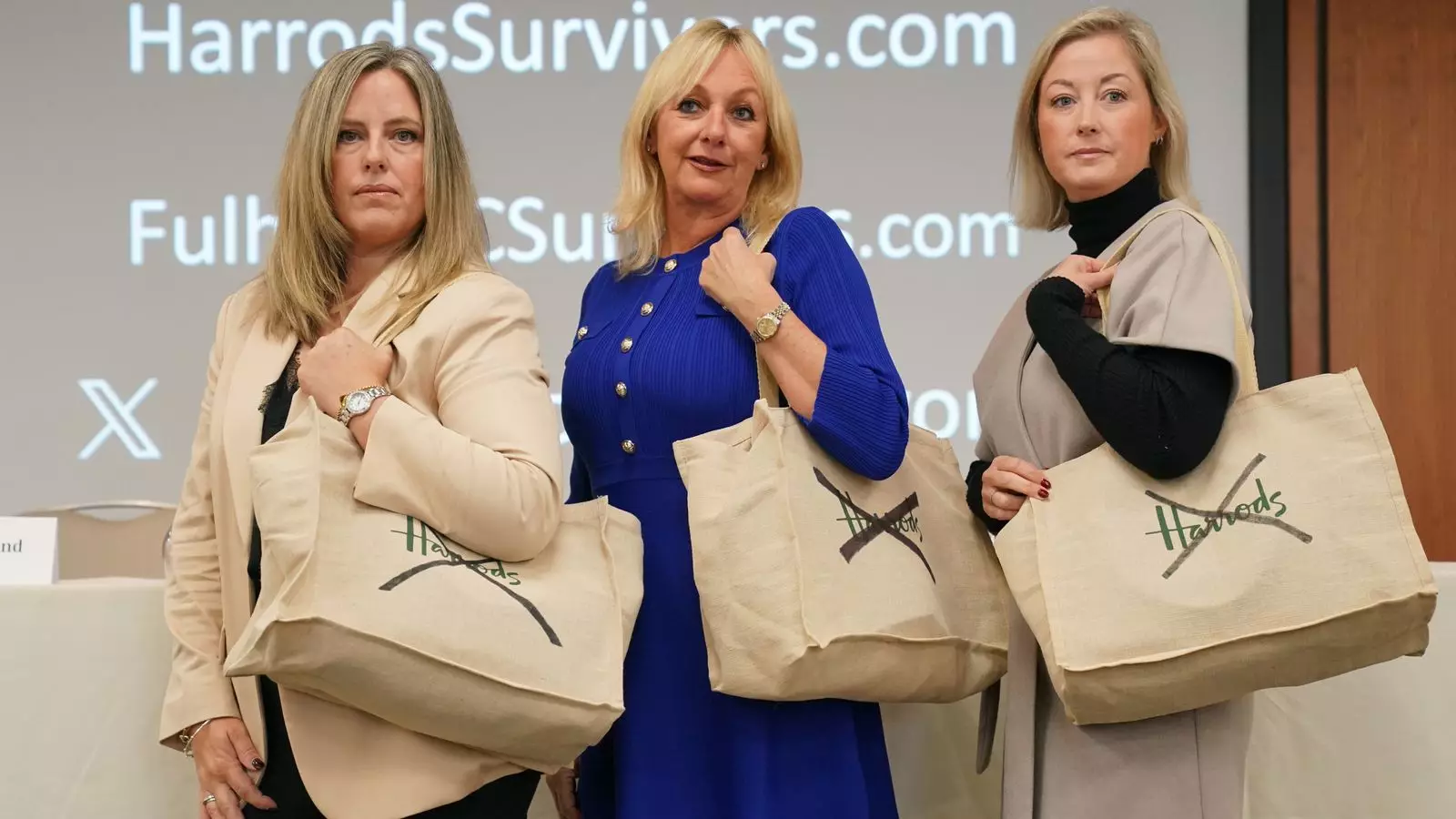In a shocking turn of events, the Justice for Harrods Survivors group has announced that they have received over 400 contacts from individuals claiming to be either victims or witnesses of misconduct linked to the late Mohamed al Fayed. This development comes on the heels of a BBC documentary that illuminated numerous allegations against the businessman, known for owning prestigious entities such as Harrods and Fulham Football Club. The allegations range from serial rape and attempted assault to sexual abuse involving minors, painting a dismal picture of Fayed’s legacy.
During a recent press conference held in London, lawyers Dean Armstrong KC, Bruce Drummond, and Maria Mulla addressed the media regarding the swell of inquiries. Armstrong revealed that formal legal processes have already commenced, with the first letter of claim sent to Harrods on behalf of an individual alleging abuse. Given the number of complaints amassed, it is anticipated that this initial claim will be one of many, reflecting the vast scope of abuse they are uncovering. “We have been contacted by 421 individuals who have been affected,” Armstrong emphasized, indicating that this is not an isolated incident involving a single survivor but a systemic issue affecting many.
According to Drummond, the claims against Fayed are predominantly originating from the UK, although allegations have also emerged from various countries, including the US, Canada, Asia, and Australia. These international contacts raise questions about the extent of Fayed’s operations and the pervasive environment that allegedly facilitated such abuse. Drummond stated, “This is not just a few isolated incidents, but rather an industrial scale of abuse.” By suggesting that such acts could only be conducted within a supportive system, he underscores the broader implications of Fayed’s actions and the environment that allowed them to proliferate.
The Justice for Harrods Survivors group claims to possess credible evidence affirming the abuses that allegedly occurred not just at Harrods and the football club but also in various locations associated with Fayed, including his residences, private yacht, and even high-profile venues like the Ritz Hotel in Paris. Drummond’s assertion that every young woman in Fayed’s “orbit was a target” draws attention to the troubling dynamics of power and control in these alleged encounters. Among those sharing their harrowing experiences is Bianca Gascoigne, daughter of former footballer Paul Gascoigne, who recounted her grooming and assault while working at Harrods as a teenager.
A Call for Accountability
The accusations against Fayed also include affirmations from several women, including former Fulham Women’s captain Ronnie Gibbons, who disclosed that she had suffered multiple assaults. In total, 21 women have previously approached the Metropolitan Police with allegations against Fayed from 2005 to 2023, a clear indication of the multiple instances of reported misconduct that have emerged over time.
In light of these serious allegations, Harrods has expressed its shock and dismay, claiming the organization today operates under a fundamentally different ethos compared to its management during Fayed’s tenure from 1985 to 2010. Their statement reflects a broader institutional responsibility and raises questions about how corporate environments can sometimes shield perpetrators of abuse.
The allegations against Mohamed al Fayed encapsulate an alarming narrative of potential corporate complicity and an urgent need for justice. The Justice for Harrods Survivors group’s efforts shed light on a deeply troubling history that demands accountability from both individuals and the organizations associated with them. As the legal processes unfold and more individuals come forward with their testimonies, society must grapple with the questions raised about abuse, power dynamics, and the imperative to create safer environments for vulnerable individuals, especially in industries with significant hierarchical structures. The coming weeks and months will be pivotal in determining not just legal outcomes, but also societal attitudes towards such pervasive issues.

Leave a Reply